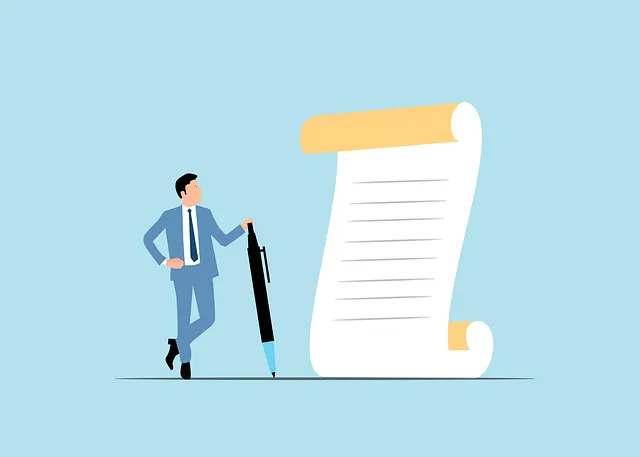Legal custody mediation is a collaborative process where trained mediators assist separated or divorcing parents in reaching agreements on child custody and parenting plans. As neutral third parties, they facilitate open communication, navigate sensitive topics, and ensure both parents understand their rights. Skilled coaches support this process by helping tailor parenting schedules to each family's unique needs, enhancing emotional well-being during transitions, and fostering long-term co-parenting strategies. This structured yet flexible approach leads to mutually beneficial solutions, minimizing conflict and preserving relationships for the child's best interests.
Child custody mediation services offer a constructive approach to navigating complex family matters. In this safe, neutral space, parents collaborate with professional mediators to create tailored parenting schedules, legal custody agreements, and long-term co-parenting solutions. By understanding the role of a mediator and leveraging the drafting process, families can achieve sustainable resolutions. This article explores these key aspects, highlighting the benefits and success stories of legal custody mediation in fostering positive outcomes for all involved.
- Understanding Legal Custody Mediation: A Safe Space for Parents
- The Role of a Mediator in Facilitating Co-Parenting Agreements
- Creating Customized Parenting Schedules: Meeting Unique Family Needs
- Legal Aspects: Drafting and Agreeing on Custody Documents
- Long-term Co-parenting Solutions for Sustainable Relationships
- Benefits and Success Stories: Mediation's Positive Impact on Families
Understanding Legal Custody Mediation: A Safe Space for Parents

Legal custody mediation offers parents a safe, structured environment to navigate complex discussions about child custody and parenting plans. Unlike adversarial legal processes, this approach encourages open communication and mutual understanding between separated or divorcing parents. By involving a trained mediator, who acts as an impartial third party, families can collaborate on creating solutions tailored to their unique circumstances. This not only reduces conflict but also fosters a healthier co-parenting relationship for the long term.
Involving a mediation preparation coach can further benefit parents transitioning through a breakup or divorce. These professionals provide guidance and support, helping individuals prepare for effective mediation sessions and gain confidence in navigating legal custody agreements. With their assistance, parents can focus on what’s best for their children while maintaining their own emotional well-being during this challenging time.
The Role of a Mediator in Facilitating Co-Parenting Agreements

In the complex landscape of child custody disputes, a mediator plays a pivotal role in guiding parents toward cooperative co-parenting agreements. This neutral third party facilitates open and respectful communication between both parents, helping them navigate sensitive topics like visitation rights, parenting schedules, and shared responsibilities. Through mediation, parents gain a clearer understanding of their legal rights and options, fostering a collaborative environment that’s beneficial for both the parents and, most importantly, the child.
A mediator isn’t just an observer; they empower parents to build a lasting co-parenting relationship with the help of divorce confidence coaching or separation support services. By preparing them for mediation sessions, these coaches ensure parents are equipped to express their needs and negotiate agreements that align with their children’s best interests. This preparation can significantly enhance the outcomes of legal custody mediation, ultimately leading to more amicable and sustainable co-parenting solutions.
Creating Customized Parenting Schedules: Meeting Unique Family Needs

When couples navigate the complexities of a legal custody mediation process, creating a customized parenting schedule becomes essential to meeting their family’s unique needs. This involves an in-depth understanding of each parent’s role, responsibilities, and lifestyle during and post the breakup. A skilled mediation preparation coach can assist parents in defining specific arrangements that work best for their children, considering factors like school schedules, extracurricular activities, and personal commitments.
The goal is to establish a schedule that promotes stability and minimizes disruption for the kids involved. By collaborating closely with both parents, these coaches guide them through various scenarios, helping them gain divorce confidence and make informed decisions. This proactive approach ensures that the parenting schedule aligns not only with legal requirements but also with the best interests of the children, fostering a harmonious co-parenting relationship moving forward.
Legal Aspects: Drafting and Agreeing on Custody Documents

When navigating the legal aspects of child custody, mediation plays a pivotal role in ensuring a structured and cooperative transition. Skilled mediators guide parents through the process of drafting and agreeing on crucial documents, such as custody agreements, which outline parenting schedules and decision-making rights. This collaborative approach fosters an environment where parents can communicate openly and reach mutually beneficial solutions without escalating tensions.
Legal custody mediation goes beyond immediate post-separation arrangements by facilitating long-term co-parenting strategies. It encourages the creation of plans that address various aspects, including emergency situations, educational decisions, and extracurricular activities. By involving both parties in these discussions, mediators promote emotionally safe separation support services and breakup coaching, ensuring a stable and nurturing environment for children to thrive post-separation.
Long-term Co-parenting Solutions for Sustainable Relationships

Long-term co-parenting solutions are vital for maintaining sustainable relationships between separated or divorced parents and their children. Legal custody mediation plays a crucial role in facilitating these agreements, ensuring both parties’ needs and the child’s best interests are considered. Through this process, parents can establish clear and consistent parenting schedules, which provide stability for the child.
Separation support services, including mediation preparation coaches, offer guidance on navigating the emotional aspects of separation. They help parents communicate effectively, manage conflicts, and create an emotionally safe environment. By fostering open dialogue and mutual understanding, these services enable co-parents to make joint decisions regarding major life events, healthcare, education, and extracurricular activities. This collaborative approach promotes a healthier relationship dynamic, benefiting both parents and the children involved.
Benefits and Success Stories: Mediation's Positive Impact on Families

Mediation offers a multitude of benefits for families navigating complex child custody arrangements. By providing a structured yet flexible framework, it encourages open communication and collaboration between parents. This process fosters an environment where emotional safety can be established, enabling both parties to make informed decisions with their children’s best interests at heart. With the guidance of a trained mediator, families often achieve mutually agreeable solutions that preserve relationships and minimize conflict.
Success stories abound, showcasing how mediation prepares parents for divorce confidence coaching by equipping them with the skills to co-parent effectively. Many couples report improved cooperation and reduced tension after completing legal custody mediation sessions. These positive outcomes translate into happier children and stronger post-separation relationships. Mediation preparation coaches often play a pivotal role in this process, offering support and strategies to manage emotions during negotiations, resulting in a smoother transition for everyone involved.
